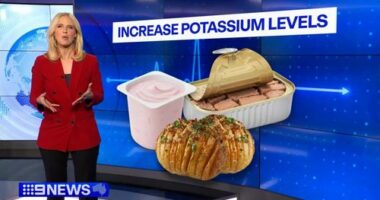Share this @internewscast.com
Interest rates are set to stay at 3.85 percent, with the Reserve Bank of Australia (RBA) indicating an impending “easing cycle” for many borrowers.
Numerous economists and experts anticipated a rate cut at the RBA’s July meeting, which would have been the third this year following reductions of 0.25 percentage points in February and May.
While three of the board’s nine members advocated for a rate change, the majority of six opted to maintain the current rate.
RBA governor Michele Bullock mentioned that the inflation data due at the end of July, before the next meeting on 12 August, would be crucial.
“As long as we continue managing inflation—our primary goal—and we get confirmation of this, an easing cycle is forthcoming,” she stated.

The RBA has kept interest rates on hold at 3.85 per cent. Source: SBS News
“We just want to confirm with a full quarterly CPI that we’re still on track to deliver inflation continuing down to the middle of the band over time,” Bullock said.
“That’s the reason we’re waiting. We decided to hold and we’ll reconsider again in August with this extra information and new forecasts. And that will allow us to decide whether or not we’re still on track for continuing to ease.
“The board chose to wait a few weeks to verify we’re still on course to achieve our inflation and employment targets, along with a comprehensive assessment of Australia’s economic conditions.”
‘Not the outcome a lot of people wanted’
Treasurer Jim Chalmers said the decision to hold the rate cut was “not the outcome that a lot of people wanted”, but highlighted the Reserve Bank was independent of government.
“I don’t second-guess decisions taken independently by the bank or its board. I don’t make predictions or pre-empt future movements in interest rates,” he told reporters on Tuesday.
“Interest rates have been reduced twice in five months, yet our task is unfinished as people remain under pressure amid an unpredictable global climate.”
But Ted O’Brien, the Opposition’s Treasury spokesperson, said Australian households were “on their knees” and said Labor could not manage the economy.
“Here in Australia, under the Albanese government, interest rates have been too high for too long.
“This is a direct consequence of Labor not being able to manage money. Labor continues on its spending spree and as the RBA itself has recognised, public sector spending is only leading to homegrown inflation.
“Until Labor starts reinstalling some discipline around fiscal responsibility, it will only make the job of the RBA harder. The RBA’s job is harder because of Labor’s actions, not easier, and the Australian people are poorer, not wealthier.”













